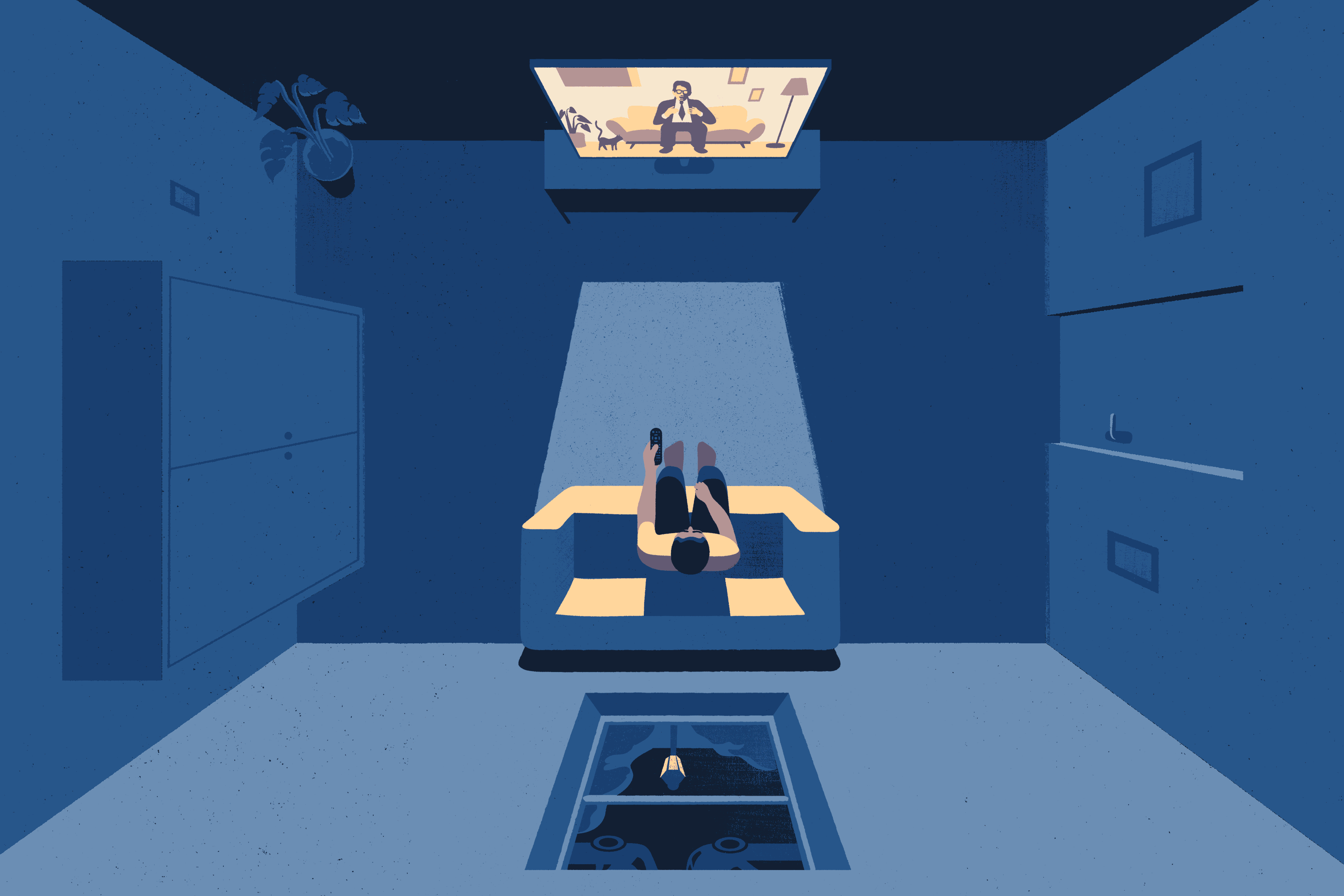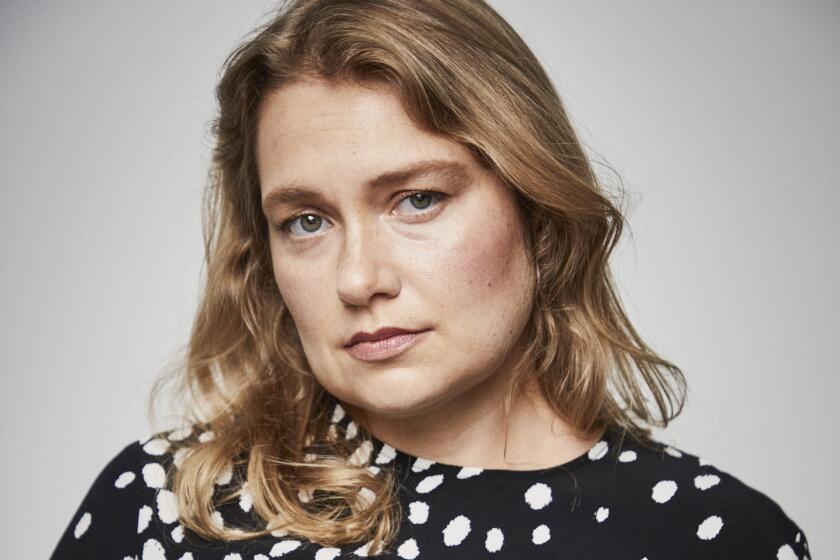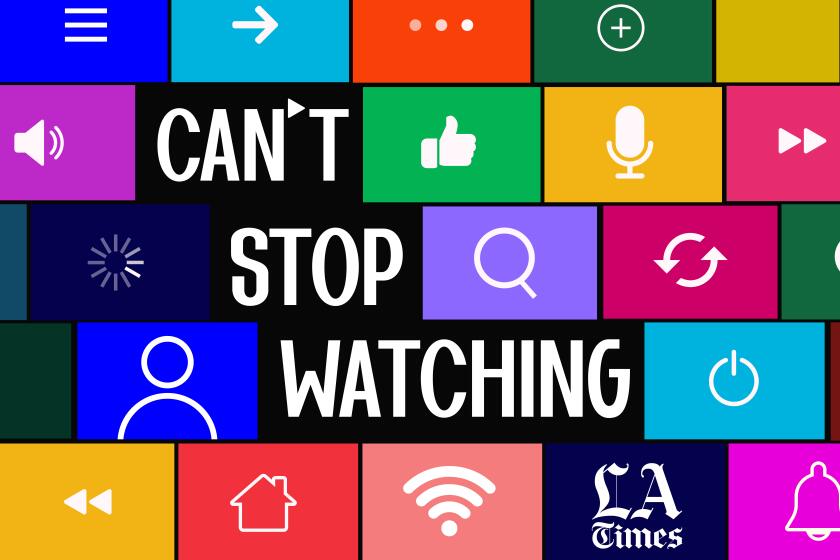‘This will happen’: Mark Ruffalo moved mountains to make HBO’s new Emmy hopeful
Before it was even published in the summer of 1998, Hollywood began circling “I Know This Much Is True.” Despite its Tolstoy-esque length and often grim subject matter, Wally Lamb’s novel about identical twin brothers became a massive bestseller, boosted by what was then the ultimate endorsement: Oprah Winfrey selected it for her book club.
Twentieth Century Fox gobbled up the movie rights for a reported seven-figure sum. Big-name talent including Matt Damon, Jonathan Demme and Jim Sheridan were attached to the project along the way, and numerous screenwriters attempted to tame the 900-plus-page book, which spans from the 1920s to the 1990s and includes a story-within-a-story about the brothers’ Sicilian grandfather. But the adaptation languished in development hell.
“I had written an unreasonably long story and nobody could quite figure out how to fit something that large into a two-hour box,” Lamb recalled by phone from his Connecticut home. The author longed to bring his story to a wider audience but grew weary of empty overtures from the industry. “I thought, OK, this is just what happens when Hollywood starts flirting with you, like the cute girl who says, ‘I’m going to go to the prom with you’ but it never happens.”
Lamb can finally buy that corsage: “I Know This Much Is True” arrived Sunday on HBO, thanks in large part to star and executive producer Mark Ruffalo, who helped rescue the project from development limbo.
A mode of communication designed to get us to stay home, often skewered as the “boob tube” or “idiot box,” TV kept its lights on as others flickered out.
Written and directed by Derek Cianfrance, the six-part series charts the saga of Dominick and Thomas Birdsey (both played by Ruffalo, who also executive produced), who are raised in a tense and sometimes violent household in a working-class town in Connecticut by their mother (Melissa Leo) and stepfather (John Procaccino). The identity of their biological father is a gnawing mystery.
Born on either side of midnight on New Year’s Eve, their lives follow similarly divergent trajectories: Thomas is a paranoid schizophrenic in and out of institutions most of his adult life, while Dominick is a house painter who is both utterly devoted to and resentful of his brother, at the cost of other relationships — including his marriage to ex-wife Dessa (Kathryn Hahn).
When Thomas is committed to a bleak, state-run mental hospital after a horrific act of self-mutilation, Dominick — assisted by a no-nonsense social worker (Rosie O’Donnell) and therapist (Archie Panjabi) — gradually comes to understand the cycle of trauma in his family.
After 15 years and many false starts, the rights to the novel reverted to Lamb. When his agent asked him who he’d like to play the twins, he immediately thought of Ruffalo, an actor he’d admired since “You Can Count on Me” (and who happened to have the same agent, Kassie Evashevski).
Ruffalo, who was just getting into producing at the time, gobbled up the book within a few days and quickly realized it was something he wanted to pursue. “It was just beautiful and it was personal and it was really challenging and all these things that ticked the boxes for me,” says the actor via teleconference from his home in upstate New York, where he’s been isolating with his family.
What is it like for homebound writers and host to make late-night comedy in the time of coronavirus? ‘Not normal,’ says Seth Meyers.
“I’m a second-generation Italian immigrant from really poor people who worked their way up as house painters. We were taught that family’s everything. I could relate to this idea of a family curse — we’ve had a lot of hardship — and the way the women in Dominick’s life are the ones who teach him how to be whole in the end,” Ruffalo says.
Before he even finished the book, Ruffalo fired off an email to Evashevski, who forwarded it to Lamb. The writer describes it as “the most incredible email I’ve ever received” and, after putting down the phone to retrieve the message, reads it aloud:
“I cannot tell you how much I love this book. It was so deeply moving and personal to me in so many ways. I know these people. I grew up with them. It’s clear that Wally is very well versed in film because of the cinematic nature of the writing, not bang-up, loud cinema, but the kind of cinema that’s meant for great acting — quiet and intense with vast emotional geography, but subdued and visually honest. ... I already know I want to do this. It means so much to me that someone with his talent would think of me for this. The time is right for this to happen now. Culturally we are more ready to deal with this material in this manner than ever before. This will happen. I can all but guarantee it.”
Ruffalo quickly judged that the book was better suited to an episodic television series than a feature film. At the time — circa early 2015 — the director-driven limited series was in the initial throes of what would become a full-scale revival.
“It’s not an accident that there’s 22 drafts of this and they couldn’t figure out how to do it,” he says. “And we’re in this beautiful golden age of television where we can novelize a TV show.”
Ruffalo had been trying to work with Cianfrance, a filmmaker with an affinity for somber, ambitious tales of family and relationships (“Blue Valentine,” “The Place Beyond the Pines” and “The Light Between Oceans”) for some time. Cianfrance admits he said yes — and even starting pitching the project with Ruffalo — before he’d finished the book.
“I’ve always tried to tell stories about what goes on inside the home,” says the director, “where all of our brightest joys and darkest sorrows take place.”
Lamb ultimately urged Cianfrance and Ruffalo to make the material their own and did not demand to see the scripts as they were being written. He visited the set several times, and describes being overcome with tears as he viewed the almost-finished series in early March.
One thing he did care about was making sure the series authentically captured a sense of place, so he invited the filmmakers to come visit his corner of eastern Connecticut. “Western Connecticut is pâté and eastern Connecticut is liverwurst,” he says.
Merritt Wever stars with Domhnall Gleeson in “Run,” from “Fleabag” producer Vicky Jones.
In a transformative feat that seems all but guaranteed to earn him an Emmy nomination, Ruffalo plays both the Birdsey brothers. He lost 20 pounds before production began, then spent 16 weeks filming his scenes as the aggressive Dominick. Then he took six weeks off, gained 30 pounds by subsisting on oatmeal and mashed potatoes, and returned as the more vulnerable Thomas.
But his commanding work was shaped by a performance viewers never see. Early in development, Cianfrance decided he wanted Ruffalo to perform opposite a real actor performing both roles, rather than a mere stand-in. Gabe Fazio (“A Star Is Born”) was enlisted to play Thomas when Ruffalo was in Dominick mode, and Dominick when he was Thomas. (Fazio also has a small part on screen in the final version of the series.)
“It was scary because someone else is doing your performance on the other side,” Ruffalo says. “But what it allowed us to do is just to play, be in the moment and have chemistry and to be alive and vibrant, so there’s an immediacy there. I would never have been able to do [that] by myself or with somebody just standing off reading the lines.”
Cianfrance reassured Ruffalo that it was OK if he didn’t always agree with the way Fazio was playing something “because Dominick feels the same way — unhappy with his brother. So let that be part of it.”
With Poughkeepsie and the Hudson Valley region of New York standing in for eastern Connecticut, production began last spring. Ruffalo was “hangry” all the time as Dominick, said Cianfrance, a feeling that served a character who exists in a constant state of agitation and crisis. To get Ruffalo worked up, he’d often ask the actor to drop and do 50 push-ups before a take — of which there were many (he filmed some 590 hours of footage).
Hear interviews with TV stars in the new L.A. Times podcast ‘Can’t Stop Watching.’
“His veins would get engorged and he’d be short of breath. After 16 weeks of push-ups, Mark had, like, the most manly pectoral muscles ever,” says Cianfrance, a director who likes to activate the lizard brain of his performers. “There’s nothing better than those David Attenborough animal documentaries because that is footage that can never be replicated. It’s instinctual, it’s animalistic, they camp out for a year waiting for the snow leopard to appear. … I’m always trying to shoot the nature show.”
When Ruffalo returned as Thomas, costar O’Donnell saw an unfamiliar man at the craft services table. “I said to the security guard, ‘I think there’s a homeless man on set.’ And he said, ‘Look again, Rosie,’ and I was like, ‘Holy…’” she says. With a laugh, Ruffalo recalls his father’s reaction to the series trailer: “Who’d you get to play your brother?”
Even by the standards of premium cable, “I Know This Much Is True” is a difficult watch, portraying mental illness, racism, grief, domestic violence, rape, child abuse and infant death — a litany of trauma that Lars von Trier might find daunting. “It was like eating a bowl of grief,” says O’Donnell.
Whether such an emotionally taxing story will appeal to viewers in an already dark period remains to be seen, but the show’s creators believe its themes of loss, family and redemption are universal. “What we were hoping to do with the whole film was to open this experience up to everyone,” says Cianfrance.
The final episode is dedicated to the memory of Ruffalo’s brother, Scott, who was murdered in 2009, and Cianfrance’s sister, Megan Cianfrance McGinnis, who died last year.
“I don’t think it ever really heals,” Ruffalo says. “You just sort of integrate it, encapsulate it. What we both realized is we were making love stories to our families and just telling the truth about it. There’s so much of our lives that are informed by those moments, those tragedies and also those joys.”
‘I Know This Much Is True’
Where: HBO
When: 9 p.m. Sunday
Rating: TV-MA (may be unsuitable for children under the age of 17)
More to Read
The complete guide to home viewing
Get Screen Gab for everything about the TV shows and streaming movies everyone’s talking about.
You may occasionally receive promotional content from the Los Angeles Times.









